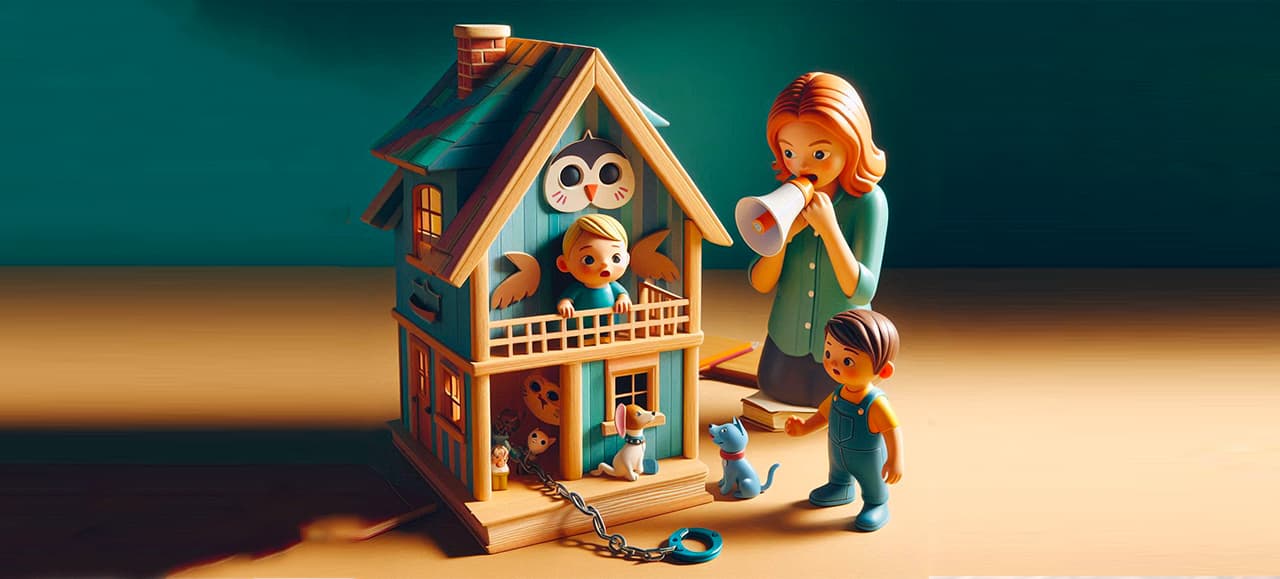Parenting: Using Your Voice Wisely – Is a Permissive, Authoritarian or Authoritative Approach Better?
Arguing about different ways of raising one’s children is a delicate subject, but sooner or later, when one finds oneself in the role of parent, it becomes crucial to address this issue. Very often, new parents tend to re-propose the style of education they received or, if they did not like it, a form of the opposite. Educating is a task that requires attention and awareness, since the choices we make then deeply influence the development and well-being of our children. Very often parents come to us looking for some kind of communicative support for their children and almost all of them are amazed when they discover that they too have to join in their children’s training sessions: in fact, communication always takes place between at least two people, it is never one-sided.
Now let’s look at these three educational approaches together in more detail with a focus on the use of voice, and since children are very perceptive to emotions rather than words, how it conveys deep emotions. Reality is always more complex than theory, so we invite you to book a voice assessment session below to find out how Inborn Voice can help you understand and set up a suitable communication style.
Permissive approach
Lets begin by considering the permissive approach. This way of bringing up children is characterised by the freedom and flexibility given to children. Permissive parents tend to be more tolerant and do not impose many limits, allowing children to explore and develop their autonomy. This is very important, but it is equally important to recognise that an excess of permissiveness may result in a lack of clear boundaries where this autonomy can exist, leaving children uncertain about what is right or wrong and depriving them of the guidance they need to navigate the world. In the context of the use of voice, permissive parents generally tend to communicate in a more calm or neutral manner, almost always avoiding any form of conflict and letting children express themselves freely without much interference. Here, too, the lack of experience in managing a conflict may prove unfavourable in later stages of growth.
Authoritarian approach
Moving on to the authoritarian approach, we see a different dynamic. Here, parents assume a more dominant role and impose strict rules and discipline. This type of upbringing may guarantee a certain degree of order and control in the family, but it tends to make children feel oppressed and restricted in their individual freedom. Without the opportunity to express their emotions and actively participate in understanding or constructing the rules, children may feel marginalised and not understood. In the authoritarian approach, the use of voice may be more assertive and authoritarian, with strong, directive tones indicating an obligation to obey without the possibility of discussion. In this case, an affective and gentle type of communication is missing, which again may be unfavourable in later stages of growth.
Authoritative approach
Finally, let us examine the authoritative approach. This educational style is based on a combination of authority and support, providing children with loving and consistent guidance. Authoritative parents set clear rules and high expectations, but at the same time are open to dialogue and understanding their children’s needs. This balance of authority and support allows children to feel safe and secure while developing a sense of responsibility and autonomy. It is an approach that promotes open communication and mutual respect, creating a positive and constructive family environment. In the authoritative approach, the use of voice is calibrated: it can be assertive when necessary, but also understanding and loving, showing empathy and respect for the children’s feelings.
It is important for children to understand that living within a society, where one does not have control over everything and everyone, entails renunciations and pain. When a parent imposes a rule that upsets the child emotionally, it is important that the same parent welcomes the child’s pain by expressing the necessary emotional affection and understanding, while keeping the rule firm and without the parent expressing guilt.
The voice of children is always a mirror of that of their parents. If a parent recognises that they have difficulty relating to others or the various challenges of everyday life, regardless of their children, then we can help them raise better children, starting with a vocal assessment meeting, which you can start by booking below.
Take the first step!
We offer world-class training to improve your personal, social and business communication skills. We specialize in presentations, leadership, media training, interviewing and Executive speaking.
Inborn Voice shapes tomorrow's leaders.
Book your first online Voice Assessment session by clicking the button below!
Any questions? We'll get back to you!
Are you looking to improve your voice with individual lessons, classes, or have any questions?
Fill out the form below!
and Mylena Vocal Coach:








Leave a Comment